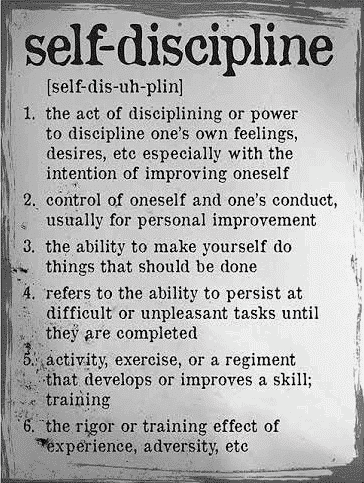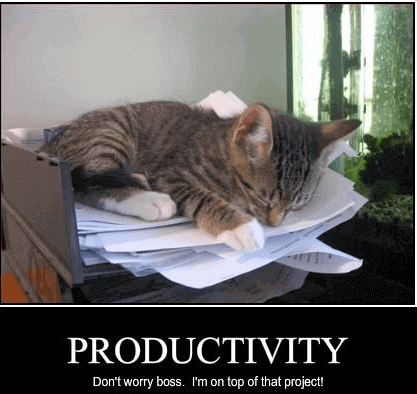This gig economy has developed at a different pace worldwide, and each country has worked at its own pace to recognize its existence and realize its impact and how widespread it is.
As a result, they’ve also developed laws that offer these people protection, in many cases, the same kind of protection that salaried people tend to enjoy in their traditional jobs.
Freelancers do everything from content writing to making advanced tracking apps like this one, architecture, interior design, graphic design, and much more.
In America today, for instance, more than one-third of the population relies on the gig economy, and this number is the result of the devastating effects of the pandemic on traditional establishments.

Projected gross volume of the gig economy from 2018 to 2023 (in billion U.S. dollars)
Working as a freelancer ideally means:
There are several reasons that can lead a worker to want to become a freelancer.
But deep down, everyone feels a part of anxiety at the beginning because we have all been used to formal and traditional salaried jobs.
This lack of confidence can hold people back from taking the plunge. However, one shouldn't worry about it because this feeling is quite natural.
The solution is to be aware of the steps to follow and the challenges to overcome as part of the process.
It doesn't matter if you are a marketing professional, a web designer, a content writer, or an IT specialist; this applies to everyone!
The Must Consider Freelance Tips For Beginners
Here are tips to help you navigate the path to becoming a freelancer and making yourself indispensable as one.
1. Know Your Skills and Identify All Your Strengths
When you become a freelancer, you’re typically providing your services or skills as a freelancer rather than to an employer with who you are engaged full-time.For instance, if you are a freelance writer, you know that the most difficult thing is to enable freelancers and clients to meet up.
For example, a Marketing Director who becomes a consultant will naturally think of offering strategic planning and project management to their client.
This is what this individual might have been doing for the past 10, 15, or even 30 years of their life in multinational companies.
As a result, it is in line with their skills, it is operational, and it makes it easier for them to intervene.
In fact, even if they become a good consultant, their interest will often go beyond that. They must try to widen the range of their opportunities to prosper in the independent world.
This could include picking up new skills, reaching out to new prospective clients, and much more.
For that, they must discover their strengths, what pushes them to get up and act in the morning, and what motivates them to improve.
By identifying their motivating factors, the consultant can develop both personally and professionally.
To find this "way" is often a challenge for each independent who embarks on their journey as a freelancer.
Many books deal with this process of self-knowledge because that is what it is all about.
We often worry about what we "should" be doing sought-after when what we need to focus on is essentially what we really want to do.
“What motivates you to take on one project or another?”
If you can answer this question, you've won. The strength of the consultant is to align their skills with their motivations and desires.
At this point, you might be asking yourself how you start this journey of becoming a freelancer and becoming a part of the gig economy.
Well, for starters, write down 5 skills (social skills, soft skills) that you are known for. Put aside the business and technical aspects of your knowledge for the moment.
The list could be the following examples -
2. Choose Your Market
Once you have identified your skills, it is time to focus on the type of projects you would like to work on as a freelancer and the clients you would like to work with.
This can be crucial to ensuring that you also enjoy what you do.
It is very important to have defined your strengths and competencies precisely because they have a direct impact here.
Indeed, your market is often the result of the following elements:
Market
- What you like to do + what you know how to do
- what you know how to do + what the market wants and needs
- what the market wants + how much they are willing to pay for it
In the beginning, however, we all tend to accept any offer to break in and build our client base.
However, as you progress in your freelance career, you'll need to make strategic choices about which assignments and clients you accept.
While people are often open to all kinds of work in the beginning, sustaining this can become difficult with time.
Choosing and segmenting your market is important because once you develop your area of expertise, you become a reference for others.
You’ll be considered an expert in your field of work and will also be able to charge much more for the services you offer. ( Her is Here’s how to price yourself as a freelancer ).
Digital and content marketing experts often say that businesses with specific markets often have opportunities to stand out and offer more value through their products.
However, depending on how much you invest, you can reach either a larger or a smaller market.
And they’re not wrong! Put yourself in a client’s shoes; would you rather hire a business generalist or a professional who specializes in solving your problem?
Most smart people would choose a specialist as they can ensure a higher quality of work.
By focusing on your freelance work, you can become the most sought-after option when a client has a "problem" that you can provide a solution to.
The key here is to develop a platform where you also advertise the work you do. This could be through client testimonials, a blog, a website, a well-structured LinkedIn strategy, or more.
These steps can go a long way in spreading awareness about your services and bringing you clients.
3. Going Independent Before You Quit Your Job

Why not start building your brand and add projects to your portfolio while keeping your job? It is possible to negotiate with your company the conditions of a double activity.
This approach has several benefits.
If you can make a smooth transition from employment to independence, you have everything to gain:
Increase your income before you stop :
In other words, save money before you start in order to be more comfortable during the first months of your new freelance journey.
As a part of this prudent economic approach, it is also advisable to utilize a tax calculator. Estimating and subsequently setting aside an appropriate amount for taxes from your freelance earnings not only aids in efficient budget management but also ensures you're well-prepared for any impending tax obligations as your income starts to flourish.
This is because it may take some time before you have a steady set of clients and a flow of income.
Learn to work under tight deadlines:
An overload of work (as it happens on freelance assignments) and the responsibility for on-time deliveries will quickly teach you how to work more efficiently and manage your time better.
Be selective:
You can choose your freelance assignments more wisely while still having a job as you are not yet totally dependent on that income.
This can be a great way to build your reputation as a freelancer so that when you quit your full-time job, you already have clients seeking your services.
Take time to improve:
Use this transition time to get up to speed with online training courses and learn new skills and techniques in your area.
Many freelancers advise those considering freelancing that they accumulate enough savings to cover at least a year's worth of their utilities and living expenses.
Here are some of the websites that are perfect for beginning freelancers.
4. Learn Self-Discipline
Self-discipline is among the primary qualities of all successful freelancers.
Having the ability to focus on a task until the very end is easier for some people than for others.
Rest assured, it is also a quality that can be worked on and improved, as it will always come in handy as a freelancer.
Identify all the steps in a workday and the time spent on each of them. Write down your upcoming tasks in your calendar.
Analyze the moments when you "let go" and your privileged moments of concentration and look for ways to minimize distractions.
Self-discipline can be very hard to achieve, and many people often say this from experience.
If you ask any freelancer, they will tell you that they have moments when all they do is get an hour’s nap, even when they’ve got a lot of work to complete.
And while rest is essential, pushing yourself to complete all your work before you engage in leisurely activities requires a lot of practice and willpower.
5. Define Your Work Location

Every freelancer prefers working from a different space.
Some prefer working from home and often set up a home office for this purpose.
Others may rent some office space to have a dedicated place where they can meet clients without disturbing their family or other people at home.
You, too, may choose to work from home. This has certain advantages, but it can also be a challenge. It will only work if you meet the following conditions:
Your family needs to understand that you are working and that just because you are at home does not mean you are available to talk.
Never work when you’re in bed or when you’re sitting at the kitchen table. This can make you feel lazier and also lead to other distractions. Having a set location, like a desk, will make all the difference.
Take off your pajamas for work, or dress up the way you usually would when you go out to work.
This will help set the mood for a professional environment and help you focus better. While this may not work for everyone, many freelancers working from home say that it does.
Nowadays, a very common option is to work in a coworking space as it offers the flexibility of having an office without having to pay the exorbitant prices of renting an entire space for yourself.
In these areas, you will find many options, from renting an office to renting an entire room exclusively for your business.
The next thing to take note of is that your work environment must be free of any distractions.
For instance, avoid keeping your gaming devices where you work or set up locks on apps like Netflix or Amazon Prime to prevent you from being distracted by a TV show you watch in your free time.
Next, you can also keep a few plants on your desk or around it.
Good indoor plants have been known to help with positive moods and better focus, so placing some around your workspace can be a good idea.
Most importantly, however, you must declutter your workspace.
Your desk must only have the essentials you need to work, and keeping this space tidy can go a long way in helping you focus better.
6. Update Your Profile on All Social Platforms
Optimize your profile wherever it is possible and relevant to do so.
Complete it 100% - with a good photo, your professional experience, your portfolio, and the services you offer.
Avoid selfies as these can come across as more casual when what you really need is a more professional photograph.
Don't try to stall on Linkedin (or other social networks) when you're there. Do it right. Try to look at it from the customer's or client’s perspective.
Clients will want to see as many details about your skills and experience when they open your profile, so you should make all this information easily accessible. Make it as detail-oriented as you possibly can.
Don't add expertise you don't really have because a lie won't last long. Every skill you add must be true, as these will come into play when you actually work on a project.
So, if you add that you’re an expert in using Adobe Illustrator when you actually don’t know how to use the software, this can land you in a tough spot when a client actually needs you to use the software on a project.
Finally, add business cases, case studies, achievements, or achievements illustrated in a portfolio.
In short, add what you are proud of.
Further, you can use job-seeking platforms like StudentJob or others or ask people in your network to recommend you or endorse your skills on LinkedIn.
7. Promote Your Work and Network
It is possible to network online and promote all your work as a new freelancer.
Using social media platforms like Instagram and Linkedin is a brilliant way to promote your work, skills, and content - you can make yourself highly visible.
A platform like Instagram, in particular, can be a great option if you’re someone who works in a very visual industry.
This can include digital art, graphic design, interior design, or even architecture.
Participate in discussion forums and information-sharing groups. You may never know when someone comes across your insights and decides that they want to hire you for a project.
However, don't forget that there is also an offline world. Participate in associations, conferences, fairs, and events. These have always been:
- A great source of new leads,
- A showcase for your work or even a way to find a new lead,
- A way to find individuals whose products and services complement yours,
- You always have the opportunity to keep up with changes in your industry, as well as new tools that can help you develop your capabilities and your business.
These events, both online or offline, also provide you with the opportunity to learn from others in your industry.
Many people often think that the information available online is the true extent of their learning.
However, what they don’t realize is that there’s so much more to learn when they meet people physically.
They get to see how new skills and techniques are put to use in a practical sense, and this can significantly boost your skills and perspectives.
8. Define Your Goals

So, what led you to become a freelancer? This is among the most crucial questions to ask yourself.
What do you want to accomplish as a freelancer? Generally, the most typical answers are:
- "I want more freedom" or
- "I want to be my own boss.”
Learn to define your goals and how they differ from those expressed by your peers. This can help give you a direction in which to direct your efforts.
9. Becoming Productive
Keeping track of your schedule and your own commitments can be a difficult exercise.
Indeed, being independent is different from working in an established company: nobody checks if your work is done well.
You'll need to find what works best to keep your production and motivation levels high while still having a well-organized schedule that meets client deadlines.
Further, since you’re going to be your own employee and supervisor, you’ll need to learn how to wear these different hats.
It’s crucial that you get your work done and also assess it to ensure you’re meeting the highest standards.
Next, focus on organization, as this will save you a lot of time.
Some tools such as Trello and Asana can be very helpful in managing your work and projects; they allow you to visualize everything you need to accomplish.
Other tools like Slack can make it easier to communicate with your clients or other freelancers in your team if and when you expand your operations.
Educating yourself and learning about time management methods is also a great way to improve your daily productivity.
11. Define the Value of Your The Work You Do
This can often be a very challenging task.
Even the most experienced freelancers find this difficult. It is very common to lower your prices, to get paid less, for fear of losing the ideal job.
You've probably felt uncomfortable about this, wondering if the client would reject your offer or frustrated that you could have charged much more when the client approves your offer instantly, without hesitation.
In such a scenario, how do you define value for your freelance work?
There is no "definitive" value for freelance work. Ultimately, it all boils down to a combination of the following factors -
- The complexity of the project,
- The context of realization (place, deadline, etc.),
- The difficulty of the service,
- Your client’s budget
You can also analyze your skills. Check out profiles that are similar to yours and research the amounts they charge.
This can give you a good idea of how much customers are willing to pay in the market and how much you can charge as a result.
If you work on platforms like Upwork or Fiverr, you can easily check out the profiles of fellow freelancers to see how much they charge for the same work.
12. Learn How to Gain Clients
Take time every week or month to research new opportunities and projects (depending on your workload).
When you pass on a business proposal to a client, show your interest in understanding the client's goal and tell them how you can make a difference.
It's easier to sell something your customers really need!
When you send your offer, take the opportunity to introduce yourself, display your work experience and previous work you have done.
After you've submitted your bid and gotten new projects, get to work.
Always remember: if your client is ultimately satisfied, they will most likely recommend you to others.
Recommendations and Good feedback are the keys to success for freelancers, as they ensure a steady flow of work and money.
13. Always Be Transparent With Your Customers

Transparency is key to your success as a freelancer. You must never do anything to deceive your clients, as they will find out at some point.
For example, if a project is going to cost more than the client expects it to, inform them about this, and explain why.
Don’t tell them that you can manage it within a lower budget, only to find yourself in a fix later.
On the contrary, if a project can be wrapped up in a smaller budget than the client anticipates, inform them of this too.
They will appreciate the fact that you are helping them save their money where they can.
In Conclusion
As you can see, there’s a lot that goes into becoming a successful freelancer and making yourself indispensable.
All the Freelance Tips For Beginners mentioned above can help elevate your skills and deliver high-quality work that all your clients will appreciate.
One day, you might even start your own organization if you have a great business idea, and when that day comes, you’ll need to hire employees, ensure the highest standards, and build your empire. Good luck on this journey!
Further Readings :





